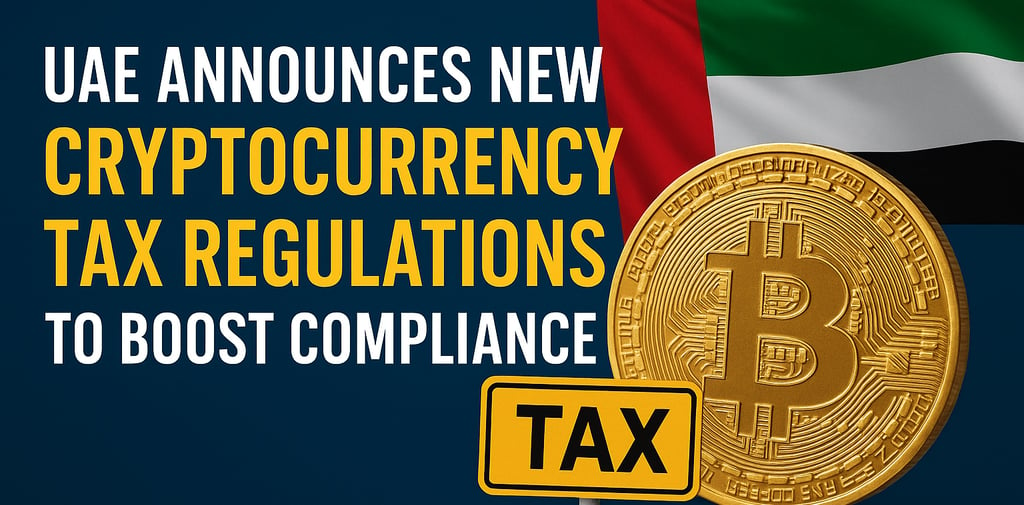UAE Announces New Cryptocurrency Tax Regulations to Boost Compliance
The United Arab Emirates (UAE) has introduced new cryptocurrency tax regulations in 2025 to strengthen compliance, transparency, and investor confidence in the digital asset market. As one of the fastest-growing crypto hubs in the world, the UAE is aligning with global standards by implementing a Crypto-Asset Reporting Framework (CARF).
9/25/20252 min read


Why the UAE Introduced Crypto Tax Rules
The UAE has rapidly grown into one of the world’s leading destinations for blockchain innovation and crypto adoption. However, the fast-paced rise of digital assets has also raised concerns about tax evasion, money laundering, and lack of accountability.
To address these challenges, the UAE introduced the Crypto-Asset Reporting Framework (CARF) in 2025. This framework ensures that individuals and businesses report their crypto activities accurately, aligning the UAE with OECD international tax standards.
Key Features of the UAE’s New Crypto Tax Regulations
Mandatory Reporting of Crypto Transactions
All licensed exchanges and platforms must report user activity, including trades, transfers, and holdings.
Global Compliance Alignment
The UAE is joining other major economies in adopting tax reporting measures to prevent illicit financial activity.
Investor Protection
Clear tax rules encourage institutional investors and corporations to confidently operate in the UAE crypto market.
Focus on Transparency
By requiring transparent reporting, the UAE ensures a safer ecosystem for both local and international traders.
What This Means for Crypto Investors in the UAE
For crypto investors, these regulations may feel like an additional burden at first. However, they bring long-term benefits:
Increased Legitimacy → Investors gain confidence knowing the market is regulated.
Safer Environment → Reduced risk of scams and unregulated activities.
Global Recognition → UAE becomes a trusted hub for international crypto firms.
Traders and businesses should now prioritize compliance and accurate reporting to avoid penalties under the new system.
UAE’s Role as a Global Crypto Hub
The UAE’s proactive approach to crypto regulation sets it apart from many other regions that still lack clear policies. With Dubai and Abu Dhabi already attracting major crypto exchanges, these tax rules strengthen the country’s position as a global leader in digital finance.
By balancing innovation with regulation, the UAE is ensuring sustainable growth in the crypto industry while protecting investors.
Conclusion
The introduction of new cryptocurrency tax regulations in the UAE represents a turning point for the region’s digital economy. These rules will not only boost compliance and investor protection but also help the UAE solidify its place as a world-class crypto hub.
As crypto adoption grows, investors and businesses should embrace these changes as part of the industry’s natural evolution toward legitimacy and global integration.
